Legacy Land Conservancy is pleased to announce it has permanently protected a 17-acre farm located in northern Washtenaw County and almost completely surrounded by other conserved farmland.
Amaizin’ Pop Farm, conserved thanks to the efforts of landowner Charlie Sing, consists of picturesque barns, idyllic rolling pasture fields, and prime agricultural soils. Situated northwest of Ann Arbor in an area heavily sought after for development, its protection through a conservation easement is vital to ensuring rich, productive soils are permanently protected and remain viable for agriculture now and in the future.
“I’m happy to do my part by protecting my farm from development,” Charlie said. “It helps out my fellow farmers, the community, and helps save a little more green space for the planet.”
Though small in size, Amaizin’ Pop Farm adds to the nearly 1,000-acre block of farmland in the area already conserved through a multi-partner regional effort. Legacy is grateful to work with partners like the City of Ann Arbor Greenbelt, Webster Township, and the Natural Resource Conservation Service (NRCS) who recognize the importance of conserving large blocks of farmland and helped to make conserving Amaizin’ Pop Farm possible.
“Context really matters for this parcel,” Rosie Pahl-Donaldson, Land Acquisition Supervisor of the Ann Arbor Greenbelt said. “It is a crucial piece of a larger conservation landscape, located in one of the most impressive blocks of contiguous protected land within the Greenbelt.”
By conserving smaller parcels of farmland–like Amaizin’ Pop Farm–within a larger protected area, it benefits farmers today as well as in the future. When conserved in close proximity to other farms, the tight-knit supportive farming community remains intact. And as farms change hands over time, small parcels are a good fit for farmers starting out or growing a new business.
Charlie is a retired genetics professor from the University of Michigan. He and his wife originally purchased the land in 1999. He is affectionately known as “Popcorn Charlie” in the community. Over the past 20 years he has used a portion of the land to breed improved strains of popcorn.
“I’ve been interested in corn farming most of my life,” Sing explained. “It’s in my soul.”
After successfully developing 13 novel strains of popcorn, he retired from the breeding business in 2022. His strains are used by the popcorn industry to produce the hybrid seeds that are used to grow the popcorn we eat. He currently keeps company with a small herd of beef cattle on his farm, and finds joy in sharing his life’s work with the community through educational events.
Charlie will be part of an Ann Arbor District Library event–Culinary Historians: Popcorn as a Food, a Crop, and a Business–on March 24, 2024 from 4:00pm-5:30pm. He will explain the biology of the popcorn plant, describe his personal experiences developing hybrids, and outline how popcorn is grown, processed, and distributed to consumers. For event details check out the Ann Arbor District Library event page >>> https://aadl.org/node/624668
“In a time when farmland is being developed at an alarming rate, Legacy’s work to protect farms is crucial,” Diana Kern Executive Director said. “We are extremely proud to work with famers like Charlie who recognize the importance of protecting farms and feel a strong sense of duty to keep their community’s agricultural heritage alive.”
To purchase the Amaizin’ Pop Farm conservation easement, Legacy worked over four years to secure a myriad of funding through the City of Ann Arbor Greenbelt, Webster Township, the Washtenaw County Parks & Recreation Commission (WCPARC), the Natural Resource Conservation Service (NRCS), and other private entities.
Click here for the press release

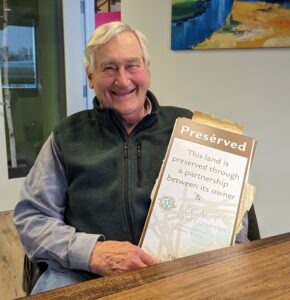
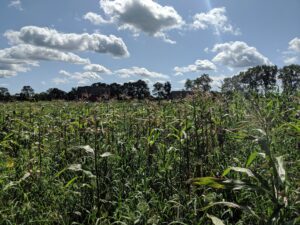
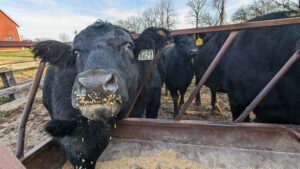


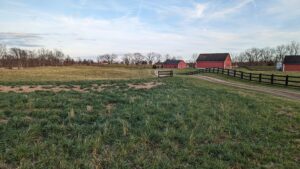
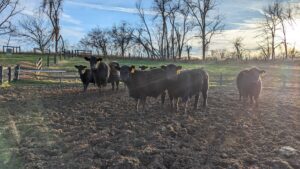
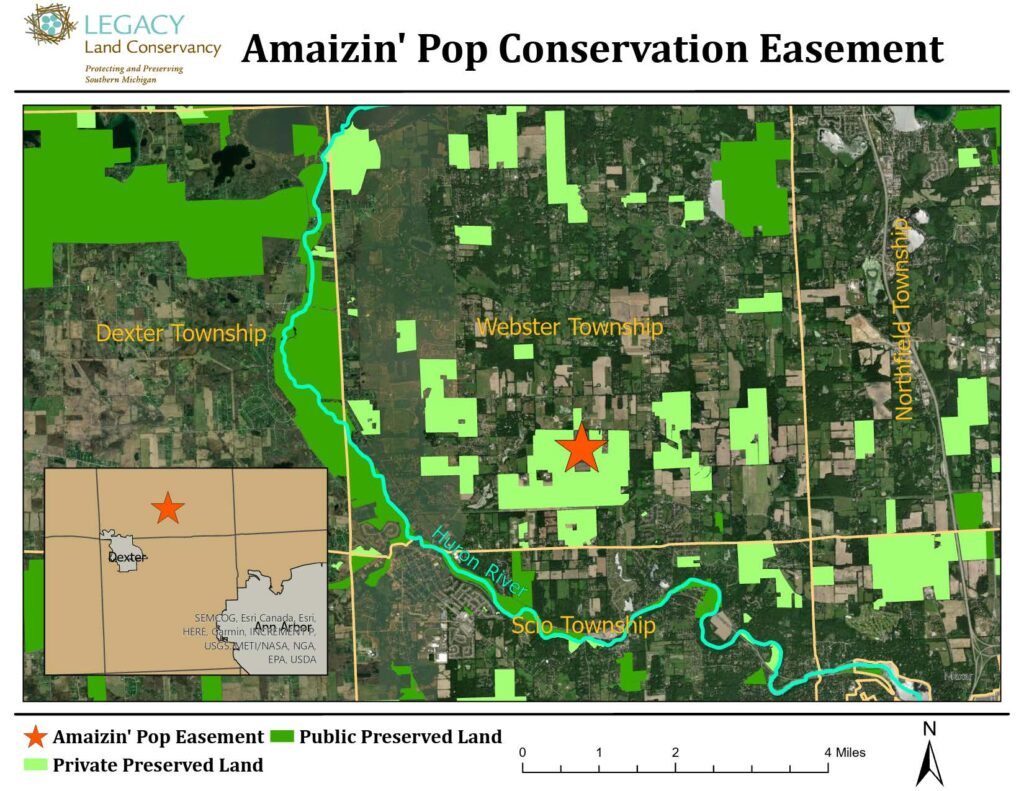
 RSS Feed
RSS Feed